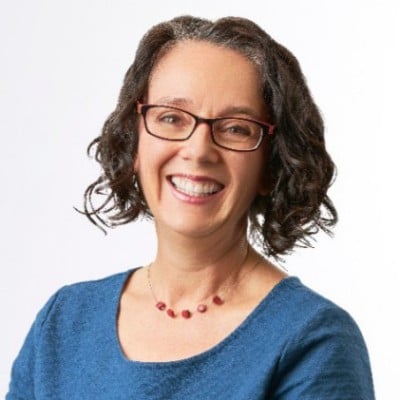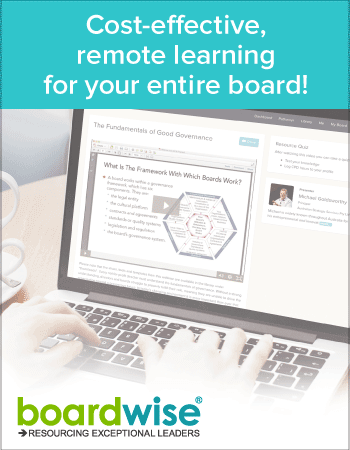governance
A Positive Wind-Up For The Centre For Sustainability Leadership
Published: July 30, 2019
Read Time: 6 minutes

After 13 years of training and support, the Centre of Sustainability Leadership (CSL) reached a natural end to its ground-breaking run. Under the guidance of the board, CSL is handing over its intellectual property, brand and the 1000+ alumni to the Monash Sustainable Development Institute (MSDI).
‘Sustainability’ was a word that offered optimism and opportunity when co-founders Larissa Brown and Jason Clarke kicked off CSL back in 2004. Larissa was the visionary who seeded the leadership training idea through the Greensteps Program for Monash Sustainable Development Program. Jason was the ‘first follower’, the one who helped bring leadership content and a way forward. The mantra was and still is, ‘if you can’t get people in power to care, then get people who already care into positions of power and influence’.
It was a grassroots organisation, the kind built around a kitchen table with good intentions and to begin with, little funding. As philanthropic and other funding grew, CSL could provide even more people with the opportunity to participate in its life-changing sustainability leadership programs. CSL’s need – and reputation – grew. At its peak, there was more than a dozen staff. The tight-knit alumni flourished.
However, in more recent years, CSL found it increasingly difficult to make ends meet.
I joined CSL as Chair in 2015. While there was nobody like us when we first started, by this time we were not bright and shiny and new anymore. There are now other organisations doing similar work to us, so we just weren’t attracting as much philanthropic funding anymore. CSL made moves to transition from very low-cost fees to a fee-for-service model. Moves to expand the program, such as building community and corporate programs, were also explored, but it wasn’t enough to ensure the ongoing sustainability of the organisation.
I knew it was pretty common for an early adopter organisation to find itself in a different position 12 years down the track. There’s always a lifecycle and organisations should be plan for and be proud of when they come to the end of their life cycle.
So, in April 2018, we made the decision to wind up CSL. We decided that we would continue to run the 2018 program and accepted that this would likely be at a financial loss – we had enough reserve funds to allow this to happen. This would give us the time to ensure that the wind-up would be orderly, rather than a quick ‘fire sale’ process that would disrupt alumni, and potentially undermine the legacy of CSL.
Managing the wind-up
We identified five key areas of the wind-up that would require close attention to ensure it was a success. We established a working group for each, coordinated by a board member, covering:
- Expression of Interest process,
- Communications,
- Intellectual Property,
- Finance, and
- Legal
Further, the board engaged two part-time Transition Officers to help manage the word that needed to be done. CSL is a small organisation and this was an ‘all hands on deck’ process. We coordinated the work through weekly, and then fortnightly ‘transition working group’ meetings, where the coordinator of each working group would report on progress and any sticking points or risks.
The work of each group ebbed and flowed during the next nine months that constituted the remainder of 2018. Indeed, it still continues although at a much less frenetic pace. I have outlined some of the key responsibilities of each working group below.
The Expression of Interest process
The 1,000-strong passionate alumni are the key reason why our board decided early on to seek a new home for CSL, rather than simply shut up shop. The aim was to find the right values-aligned home for CSL’s alumni, programs and valuable intellectual property, rather than reach the point where all that’s left is the ‘fire sale’ option.
When we decided we couldn’t do it anymore, that CSL was no longer sustainable, we put out an expression of interest out to the world.
Twenty organisations applied to us. Our board assessed the applicants based on:
- Commitment to sustainability – that is, values alignment and proven track record in the field
- Credibility with regard to longevity and reliability – to build and advance the trusted and credible brand that is CSL
- Approach and capability to support the alumni network – to continue to influence, grow and support each other.
After a lengthy process involving applications, short listing, interviews and mutual due diligence, we settled on MSDI, an organisation that had sowed the CSL seed. It was like returning home in a way. MSDI will do a reset and review, and they’ll assess how to look after CSL’s alumni and programs and use them to complement what they already have on offer.
Communications and engagement
- The initial board discussion was facilitated with support from Ernst & Young, and staff were involved in this discussion. The decision to wind up was a collective one of staff and us as a board.
- We ensured that the alumni were first to know. It was first announced to our current program participants at their retreat, and then to alumni via a Facebook Live and immediately following this, a series of emails were released to the broader CSL community.
- Board and staff members were also allocated key stakeholders, such as funders and former board members and founders, to ensure they heard personally rather than via the grapevine.
- For current funded projects, we ensured that a clear process was in place to reassure funders that their programs would be completed.
- The 2018 graduation was held at a joint retreat and all alumni were invited to the celebration, as a way to not only mark the graduation of our final year but to also celebrate the many years of CSL’s success. CSL staff, board and founders provided as much information as possible to attendees about the transition.
Intellectual property
- Like many organisations, the CSL program and IP was only partially documented. Many of the facilitators passed down the IP informally to new staff, rather than having it all neatly documented. This needed to change given the IP would be transferred to another organisation.
- The board used reserves to fund the work to collate the CSL intellectual property, to give the new organisation the best chance of keeping the CSL spirit alive.
Finance
- There were many steps in this, including ensuring that all creditors and debtors were established and advised and assuring solvency through to the transfer date.
- Excess funds from reserves were transferred to MSDI to support future scholarship to the program.
Legal
- CSL engaged pro bono lawyers to support the negotiation and finalisation of some of the legal documents for the transfer.
In any story, the ending is just as important as the beginning. For CSL, I am proud that CSL’s legacy will continue through MSDI. I’m also proud that the wind-up proceeded in such an orderly way and that staff, program participants, alumni, funders and board were so engaged in the process.
My advice to other organisations struggling with sustainability is to be courageous – the end of one story is just the beginning of another.
I look forward to the next chapter in CSL’s story.
Share this Article
Recommended Reading
Recommended Viewing
Author
-
Facilitator
Helga Svendsen Consulting
- About
-
Helga is a connector – ideas to strategy, strategy to action and people to each other. She revels in assisting individuals, organisations and communities to engage effectively and gain clarity on their role in making the world a better place. Helga specialises in strategy and planning, governance and stakeholder engagement. Building on her extensive leadership roles in government, not-for-profit and membership organisations, Helga is a dynamic facilitator, a supportive and challenging coach, an effective trainer and an engaging speaker. She is a Board member of the Royal Women’s Hospital and the Co-Chair at the Centre for Sustainability Leadership. She is a former Non-Executive Director of YWCA Victoria and Social Housing Victoria.
Found this article useful or informative?
Join 5,000+ not-for-profit & for-purpose directors receiving the latest insights on governance and leadership.
Receive a free e-book on improving your board decisions when you subscribe.
Unsubscribe anytime. We care about your privacy - read our Privacy Policy .










